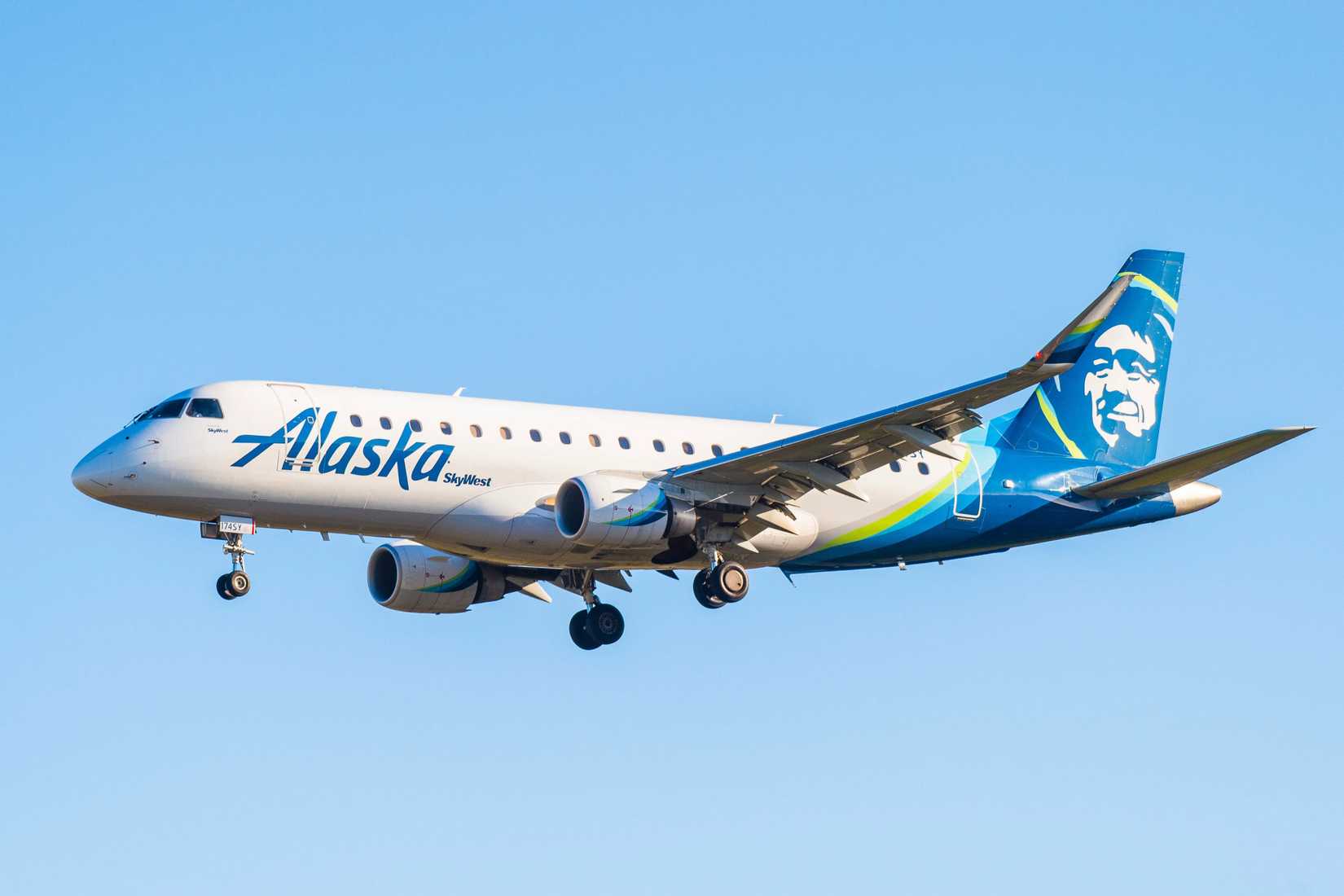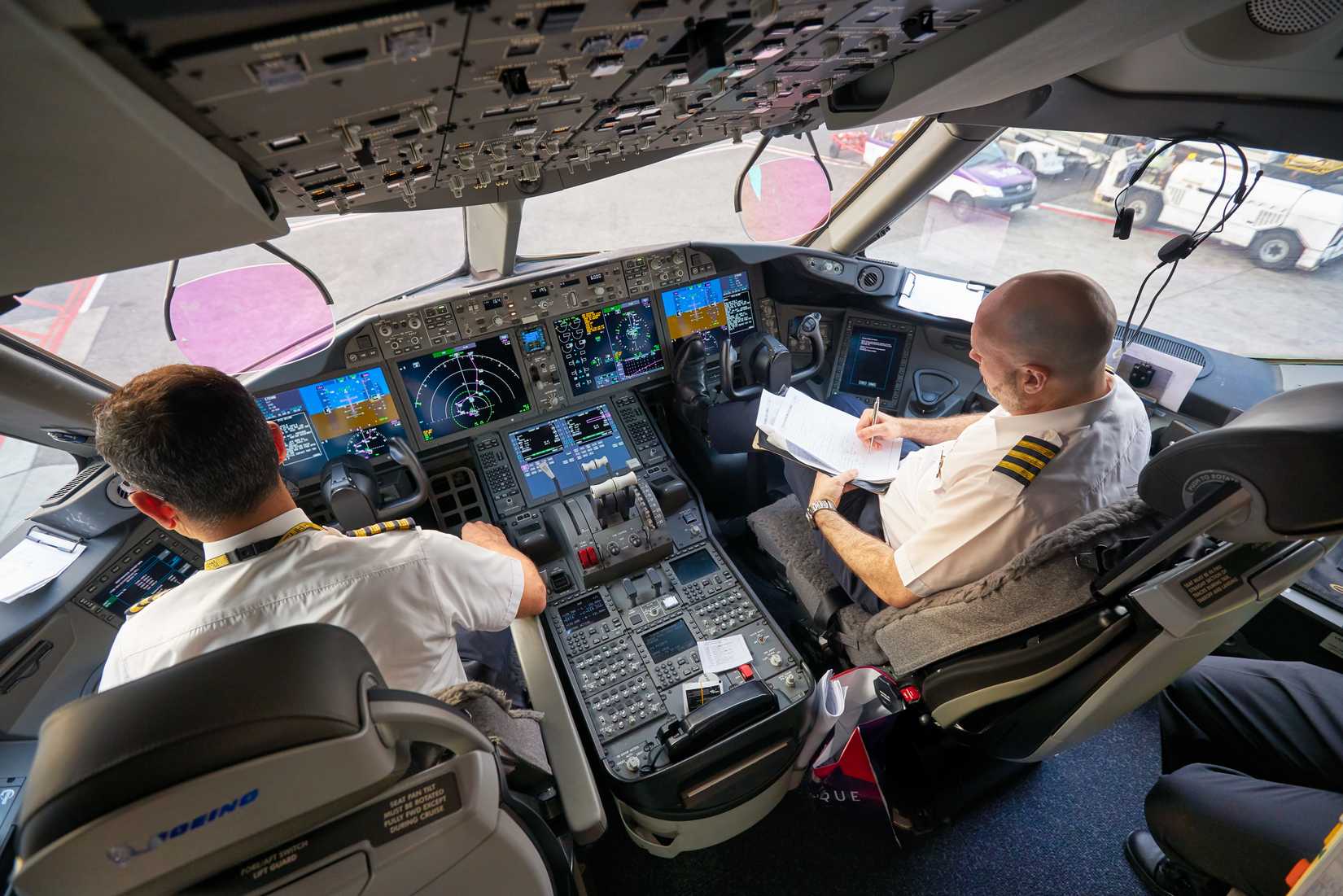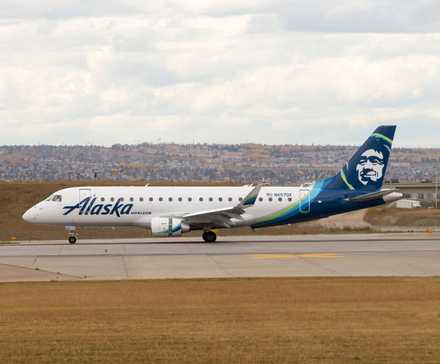A bipartisan bill aimed at overhauling how the US aviation community handles mental health and aviation certification was introduced in the US Senate this week. Designed to reduce the stigma associated with mental health issues and break down long-standing barriers to care, the Mental Health in Aviation Act (MHAA) will require the Federal Aviation Administration (FAA) to modernize mental-health-related rules for pilots and controllers, increase medical-review capacity, and fund public outreach.
The bill was introduced by Senators John Hoeven (R-ND) and Tammy Duckworth (D-IL), and it cleared the US House of Representatives with a rare unanimous vote in September. The bill has drawn strong support from a variety of industry organizations, including Airlines for America, the Regional Airline Association, the Air Line Pilots Association, and the National Air Traffic Controllers Association.

Credit: Alaska Airlines
At its core, the MHAA seeks to address concerns that existing regulations can discourage aviation professionals from seeking treatment. Currently, disclosures may lead to prolonged uncertainty and delays during the medical review process. It directs the FAA to revise regulations requiring disclosure of mental health diagnoses and treatment, so that aviators who voluntarily seek treatment can do so without triggering unnecessary, punitive, or confusing administrative barriers.
The introduction of the bill comes just days after the federal sentencing of a pilot who, in 2023, attempted to shut down the engines mid-flight of an ![]() Alaska Airlines flight from Seattle Paine Field to San Francisco. The Embraer E175 was forced to divert to Portland International Airport, where it was fortunately able to make a safe landing with no one harmed. The pilot, Joseph Emerson, later said that the incident largely came about as a result of unaddressed mental health problems.
Alaska Airlines flight from Seattle Paine Field to San Francisco. The Embraer E175 was forced to divert to Portland International Airport, where it was fortunately able to make a safe landing with no one harmed. The pilot, Joseph Emerson, later said that the incident largely came about as a result of unaddressed mental health problems.
The bill originated with an FAA committee formed in the aftermath of the incident, which subsequently provided an extensive list of recommendations to address mental health issues among pilots and air traffic controllers. The senators say the bill is intended to promote early intervention, reduce stigma, and support a safer operating environment. Duckworth said that looking after pilots and air traffic controllers is also in the interests of public safety:
“Pilots and air traffic controllers often operate under immense amounts of stress, so pursuing mental health care shouldn’t be a career-ending decision. Yet the fear and hesitancy around reporting mental health conditions and accessing care is hurting our pilots and isn’t making our skies any safer. These reforms are critically needed.”
The Provisions Of The New Bill

Credit: Shutterstock
Under current FAA regulations, pilots and air traffic controllers are required to obtain and maintain an FAA Medical Certification, which requires the disclosure of medical treatment, including for mental and behavioral health treatment. Once disclosed, even pilots with minor or well-managed conditions can face prolonged uncertainty and bureaucratic delays as they work through existing processes to secure treatment and a safe return to service. Further, the FAA has limited psychiatric staff to process pilot mental health evaluations, compounding the bureaucratic delays and leading to a significant backlog of special issuance applications.
Provision Of The Mental Health In Aviation Act
Modernize mental health guidance regulations for pilots and air traffic controllers to encourage the early disclosure and treatment of mental health conditions, and to reduce the stigma surrounding mental health in aviation.
Annually review the FAA’s Special Issuance Medical Certification process, appropriate mental health treatments and medication use, and overall mental health training for Aviation Medical Examiners.
Allocate $15 million annually (FY2026–FY2029) to the FAA’s Office of Aerospace Medicine to expand and train additional medical examiners, including specialists, to improve the efficiency of the FAA’s Special Issuance Medical Certification process.
Allocate $1.5 million annually (FY2026–FY2029) for a public information campaign to help reduce the stigma around mental health care.
The next steps for the MHAA involve the legislative process in the Senate, starting with review by the Senate Committee on Commerce, Science, and Transportation. Following that, there will be a debate and a vote, where the bill is widely expected to pass. The final steps will be any potential reconciliation with the House version, and then the President’s signature to sign it into law.

Related
Judge Releases Former Alaska Airlines Pilot Who Tried To Shutdown Engines Inflight
The most recent sentencing for a pilot who unsuccessfully attempted to shut off the engines of an Embraer inflight in 2023, which ended his career.
The MHAA Has A Supporting Act

Credit: Denver International Airport
The MHAA is being paired with the Aviation Medication Transparency Act (AMTA), which requires the FAA to publish a comprehensive, user-friendly, and accessible list of medications that are safe for pilots and air traffic controllers, developed in consultation with various stakeholders. This information is currently available to aviation medical examiners, but not in an easy-to-understand format for pilots and air traffic controllers.
The AMTA will help to create and publish a list of medications that the FAA has designated as “can be safely prescribed,” or “do not issue.” It will also indicate, if any, the period of time during which individuals holding an FAA medical certificate must have limited or no duties while taking certain medication. In addition, it will provide doctors with information on how to contact the FAA should they have any questions. Ultimately, the legislation aims to enhance safety by empowering pilots and air traffic controllers with the essential information they need to work with their doctors to find treatments that minimize the impact on their certification.
